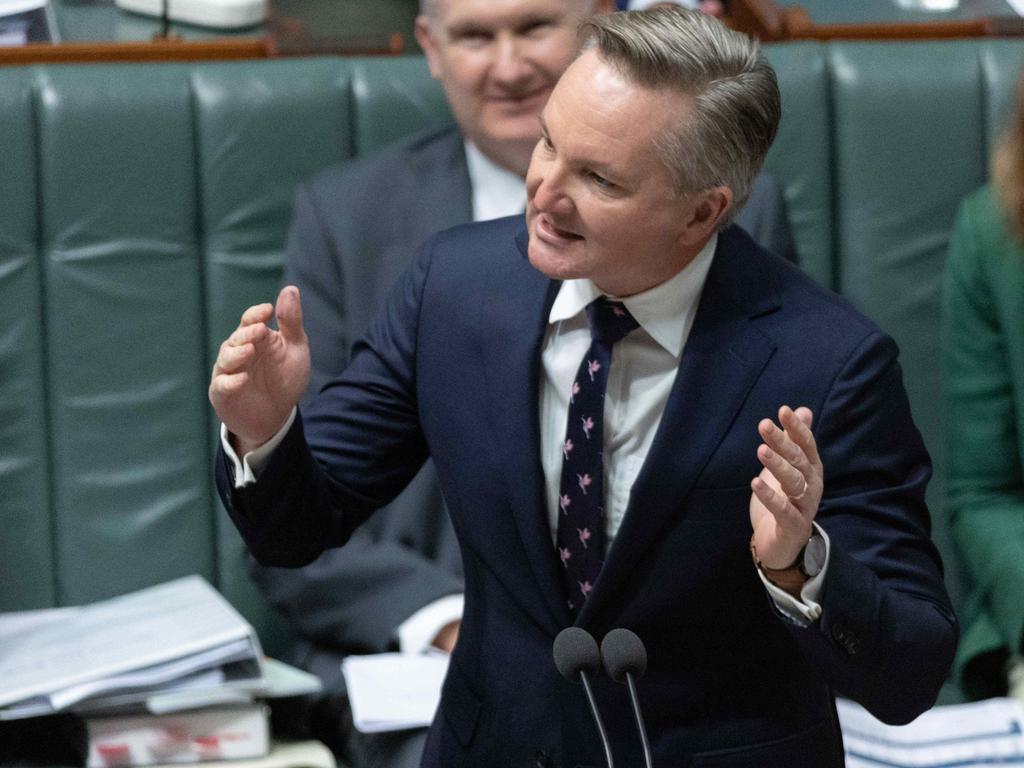Act now or miss green energy boom time

The idea Australia is well positioned to benefit from the economic opportunity of the global energy transition is widely accepted, and valid. We are endowed with the sun, wind and critical minerals needed to become a renewable energy superpower that exports products such as green metals and green fuels to the world. But it also seems widely accepted this future will fall into our laps. Call it Lucky Country syndrome. It’s not that we’re doing nothing to speed development of these future-facing industries, it’s that others are doing more.
The recently passed US Inflation Reduction Act contains $580bn worth of incentives encouraging the production of clean energy in the US. The EU Green Deal Industrial Plan is worth $380bn. Even petrol-rich Gulf states have seen the writing on the wall and are investing their sovereign wealth funds in creating a new energy-industrial complex.
The bottom line is that these packages are making renewables cheaper and faster to produce overseas than here. This makes our competitors a more attractive destination for value chains that leverage renewables and green hydrogen to produce green metals, fuels and fertilisers. These are the value-added industries we are relying on to diversify our fossil fuel-exposed regional communities.
A green hydrogen project in the US can hypothetically receive a $US3/kg hydrogen production credit and a $US15/MWh renewable electricity production credit, among other benefits. As things stand, these incentives could mean US-produced green hydrogen is the cheapest in the world. This means for potential export markets for Australia, such as Japan (a price-sensitive market), the US could eat our hydrogen lunch.
The implications for Australia are significant. Our analysis shows the US IRA and other initiatives could result in the scaled production of hydrogen in Australia being delayed beyond 2035, resulting in total potential hydrogen exports shrinking by 65 per cent over the next three decades.
Similarly, the development of other renewable energy industries could be slowed as capital and talent flow to other economies. Our planned transition to net zero runs the risk of becoming disorderly and in such an event it is unlikely the jobs and income generated by clean industries will be able to replace the fossil fuel industries being phased out.
So, what can we do? The first step should be to develop a targeted industrial policy in response to the IRA that preserves our underlying comparative advantages. Incentives need to be shaped to create export-orientated production facilities (preferably regional) that are supported in their infancy by domestic industries – think green steel being used by local manufacturers.
The second step should be to signal to the market that Australia is getting serious on hydrogen production by considering a $2/kg hydrogen production credit. This is about half the level of the credit in the IRA, all that is needed given our natural advantages. Such a credit would cost about $15.5bn in today’s terms over 10 years – but if we get it right, Australia would be on track to produce and export $17.4bn, in today’s terms, of clean hydrogen annually by 2050.
How we reduce the transaction costs of production and shift our cost curve lower is paramount.
Some commentators might suggest we wait – surely, we will benefit from global efforts driving down the cost curves of green technologies. This is true. But it is also the case that there are significant early-mover advantages. Delay is likely to mean Australia remains a global taker, not a maker, of our low-carbon future.
Pradeep Philip is head and James Boyle a manager at Deloitte Access Economics.







The global transition to net zero has long been characterised as a group effort between sovereign nations dedicated to mitigating the more adverse effects of climate change. The reality is it is more of a gold rush, and one in which Australia risks failing to stake our claim. While last Friday’s agreement by energy ministers to refresh the national hydrogen strategy is a great step forward, urgency is the name of the game.